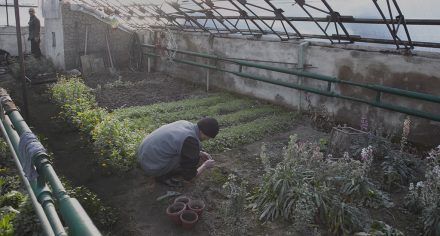PRI Central Asia hosts forum on employment for former prisoners

On 12 December, PRI’s Central Asia office held its 2nd Prison Forum. The event was hosted by the General Prosecutor’s Office and supported by the Ministry of Internal Affairs for the Republic of Kazakhstan, the British Embassy and the OSCE Centre in Astana.
The 1st Prison Forum in December 2013 was the first national event on a prison issue and discussed the importance of employment in rehabilitation and reintegration of former prisoners. The focus of this year’s forum was employment opportunities inside prison as an aid to successful reintegration of offenders after release.
Many prisoners, regardless of where they live, re-enter society no better equipped to avoid a life of crime than when they were first arrested. Finding and keeping a job after imprisonment is one of the most difficult challenges they face, despite the fact that steady employment is one of the best guarantees against re-offending. Non-custodial sanctions such as community service often enable people to continue working while carrying out their sentence in the community, but it is also essential that prison systems invest in helping prisoners to gain skills to increase their employability.
PRI’s Executive Director took part in the event, noting the changes that had taken place over the previous 12 months: notably, a reduction in the rate of imprisonment from 295 per 100,000 population to 277 per 100,000; together with significant increases in the use of alternatives to detention and early release schemes. Changes in the Criminal Codes and Criminal Executive Codes of Kazakhstan have been made and the bail system has started to work: 2,736 cases were granted bail this year compared to only eight in 2013. These are all signs of significant progress.
She also presented a number of examples of good practice from European countries to demonstrate the role that private companies and civil society organisations can play in providing work experience, training and education for prisoners to equip them better for the job market. In the UK, a number of household name businesses provide training for prisoners such as in shoe repair (eg. Timpson), baking (eg. Gregg’s bakeries) and catering skills (see The Clink charity) and offer jobs to a number of them on release. However, many factors are involved in successfully reducing the rate of recidivism and support from probation services is often the key to achieving this.
Experts from Germany and Russia also shared good practice and experience – the Head of the Berlin’s prison in particular spoke of the benefits of employing prisoners and paying them a wage so they could save money for their families and to help them after release.
One former prisoner spoke enthusiastically in support of the engineering training he had received while in detention and how this had made a huge difference to his life, enabling him to get a job and give him confidence for the future.
Participants received copies of the PRI publication 100 Jobs for Prisoners, giving detailed guidance to all sorts of productive work prisoners can carry out – from growing vegetables to making handbags, clothes, jewellery and agricultural implements. The manual is introduced by a number of individual prisoners’ stories, setting out their experiences from life before and after prison and explaining how they had found ways to make better lives for themselves.
Further information
In Russian: interview with PRI Regional Director Saule Mektepbayeva on the difficulties prisoners face on leaving prison.
http://youtu.be/nf61EgLVO2s